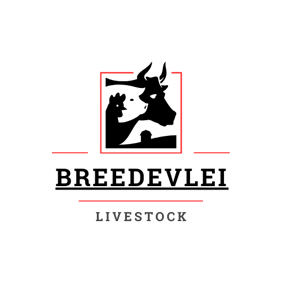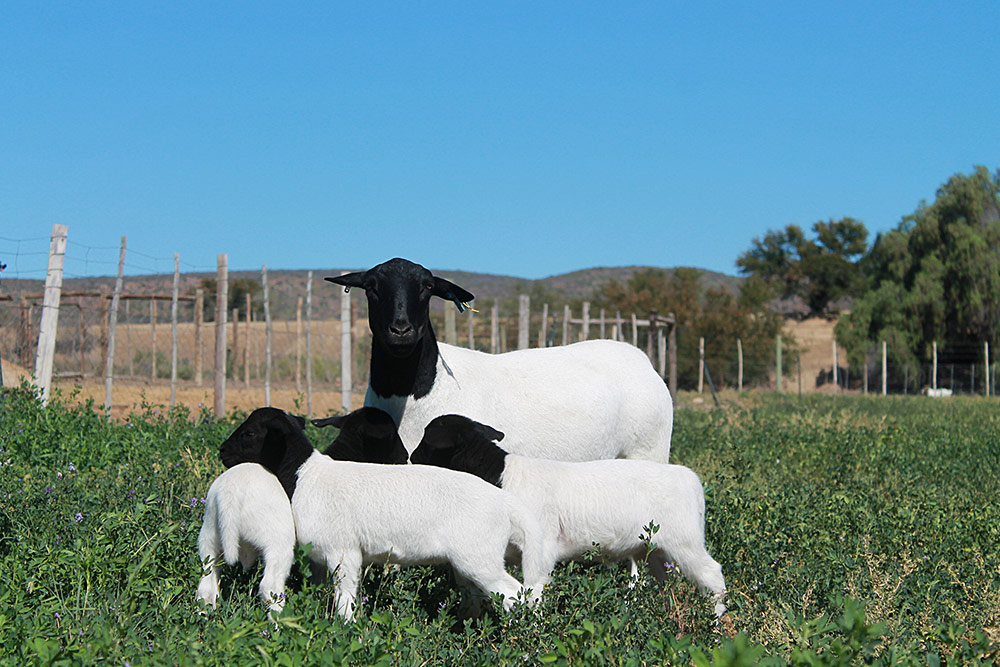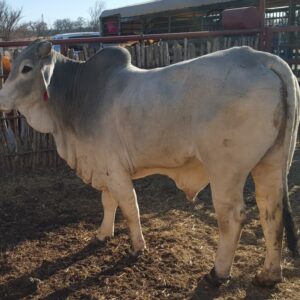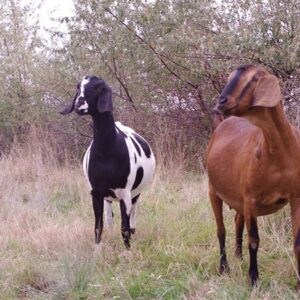Description
The Dorper Sheep is a very hardy animal that can live on minimal food. They consume whatever is available. Two types of Dorper sheep, the Black headed Dorper
Discover the exceptional breeding capabilities of Dorper sheep, a unique polyoestrus breed unlike any other. Unlike most breeds that produce young once a year, Dorpers stand out by being capable of three reproductive cycles in just two years. Imagine the advantage – a breed that can provide you with young ones more frequently!
Known for their propensity to give birth to twins, Dorper ewes are not only prolific but also display remarkable motherly instincts. In prime condition, they effortlessly rear twins, showcasing their protective and nurturing nature. While triplets are a rarity due to the limitation of two teats, the potential for thriving offspring remains.
Originating in South Africa, Dorper sheep result from a strategic crossbreeding of Dorset Horn and Blackhead Persian sheep. Renowned for their rapid growth and meat production, these sheep are easy to care for, making them the second most popular breed in their native country.
Key Features of Dorper Sheep:
- Versatile Reproduction: Polyoestrus nature allows for three breeding cycles in two years.
- Maternal Excellence: Strong maternal instincts and protective nature, especially towards twins.
- Crossbred Brilliance: Developed by crossing Dorset Horn and Blackhead Persian sheep.
- Fast Growth: Recognized for rapid growth and efficient meat production.
- Adaptability: Well-suited for diverse climates, showcasing resistance to cold, wind, rain, and high temperatures.
- Low Maintenance: Easy to care for with minimal shearing concerns.
- Ideal for Intensive Feeding: Thrives under intensive feeding practices.
- High Fertility Rates: Ensures a consistent and productive breeding program.
- Durable Build: Thick skin, strong broad neck, and correct alignment of upper jaw and lower teeth.
Characteristics
- Adaptability
- Resistance against cold, wind, rain also high temperatures
- Easy to care for without shearing problems
- Suitable for intensive feeding
- High fertility rates
- Thick skin
- Strong broad neck
- The upper jaw and lower teeth must be correctly aligned
Average Weight
Ram: 102 kg – 124 kg
Ewe: 72 kg – 99 kg







Reviews
There are no reviews yet.